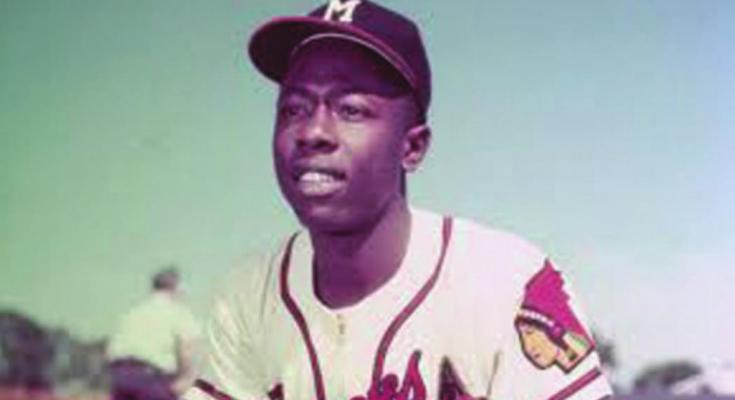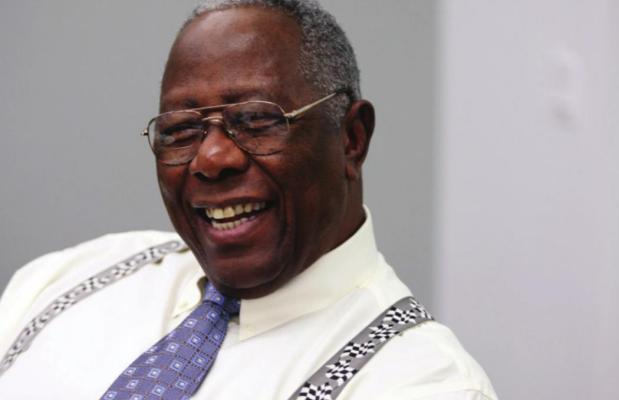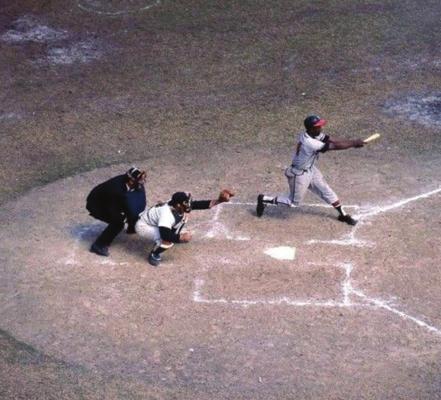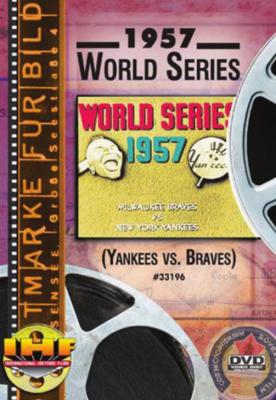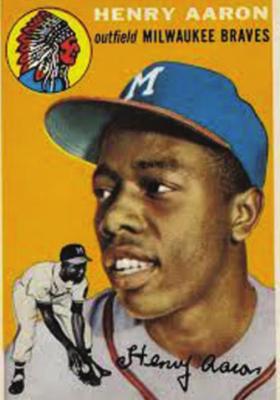Hammerin’ Hank Aaron was one of baseball’s greatest
One of my New Year resolutions was to not write about someone’s passing so often. It seemed like this space was becoming a sports obituary section. But I’ve broken my resolution once and now I am about to do so again.
This past week one of baseball’s greatest icons, Henry Aaron, died at the age of 86. Aaron was such a great man and a great baseball player, I wouldn’t feel right passing on a chance to discuss his career.
He will be remembered as the one who eclipsed Babe Ruth’s career home run record of 714 home runs. I was in front of the television set when Aaron hit his 715th home run. It came on April 8, 1974 in Atlanta’s Fulton County Stadium, a long blast off of Los Angeles Dodgers lefthander Al Downing. A pair of fans ran onto the field to congratulate him as he trotted around the bases. He eventually got to home plate and was mobbed by teammates. His parents were nearby and he was allowed to greet them and I remember a young man with a microphone asking him questions. I learned later that the interviewer was Craig Sagar, who was just 23 at the time. Sagar went on to a career with ESPN. Aaron was in the twilight of his career, but he went on to play two more seasons, including a short stint with the Milwaukee Brewers.
Aaron had begun his career in Milwaukee joining the Milwaukee Braves in 1954. I liked the Braves back in those years. I almost always have been an American League fan, but I usually had a National League team or two that I liked as well. My affinity for the Braves came after they moved from Boston to Wisconsin and began to play some respectable baseball. I loved Eddie Mathews, who led the league in home runs in 1953. Mathews was only 23 at the time. He hit 47 homers, which turned out to be his best total during a long career. The Braves had an amazing number of fans come out to watch them play and because of their success, the St. Louis Browns were moved to Baltimore in 1954 and the Philadelphia Athletics were moved to Kansas City in 1955.
Anyway, Aaron joined the Braves in 1954 as a 20-year-old and had a pretty decent rookie season. In 122 games, he batted .280, hit 13 home runs and drove in 67. The next year was his breakout season when he played in 153 games, had a batting average of .314, hit 27 home runs and had 106 RBIs. He did not look like a home run hitter, carrying 180 pounds on a 6-foot-2 frame. But I remember commentators saying that he had really “quick wrists,” I guess meaning that he was able to adjust his swing at the last possible instant to get maximum clout.
His career home run record since has been topped by Barry Bonds, but many baseball purists insist that Aaron’s should be the real record, because Bonds’ total was enhanced by performance enhancing drugs. Aaron was philosophical about Bonds’ breaking his mark saying that he had held the record for 30 years and that it was time for someone else to take over.
Aaron was not a universal hero when he broke Ruth’s record. In fact he received death threats and had to be accompanied by bodyguards whenever he went out in public. The animus was largely racial in nature. Babe Ruth had been the ultimate hero in Major League Baseball that allowed only whites to play. To have a Black break one of the game’s most hallowed records was unseemly to some. Aaron was fully aware of what was going on. “If I was white, all America would be proud of me,” Aaron said a year before he broke Ruth’s mark. “But I am Black.”
Aaron still has a whole passel of records including 2,297 career RBI’s, 6,856 career total bases, 1,477 career extra-base hits and 25 appearances in All-Star games. The only years he didn’t make the All-Star team was his rookie year in 1954 and his last season 1976. He was the National League batting champion twice, in 1956 and 1959 and was National League Most Valuable Player in 1957.
Speaking of 1957, that was one of my favorite teams ever (among those who played in the National League). The team was loaded. Aaron, of course, was the right fielder. Mathews was at third base, Joe Adcock and Frank Torre split the duties at first base, Del Crandall was the catcher (backed up by Carl Sawatski), Red Schoendienst was at second base, Johnny Logan was the shortstop, Wes Covington was in left field and Bill Bruton was in centerfield. Warren Spahn, Lew Burdette and Bob Buhl were the top pitchers, with Gene Conley, Juan Pizarro and Bob Trowbridge also getting some starting assignments. A youngster named Bob Hazle came along toward the end of the season and played in 41 games. Hazle had a hot hand, hitting .407 during the stretch. He got the nickname “Hurricane Hazle” because of his red hot bat. Many of the Braves said that without the spark his bat provided, Milwaukee might not have made it to the World Series. Hazle was a one-hit wonder, never living up to his “Hurricane” status ever again.
In the series, Burdette was the star, winning three games, including the seventh and deciding game as the Braves defeated the New York Yankees. Aaron, who had won the MVP for batting .322, hitting 44 home runs and driving in 132 runs, had a good Series hitting three home runs. The Braves and Yankees returned to the World Series in 1958, which turned out to be Aaron’s last time in the Fall Classic. This time the Yankees won in seven games.
Aaron wanted to retire after the 1974 season, but said he was willing to play another season if the Braves would guarantee him a front office job. He had his eye on the position of general manager which would be in charge of running the team off the field. The Braves said they would rather have him work in a public relationstype job and Aaron declined that offer. He asked to be traded and he was traded back to Milwaukee, then in the American League. He hit his 745th home run towards the end of the season and then shortly before the 1976 season decided to play in Milwaukee another year. Dick Drago, who served up Aaron’s 745th home run as a member of the California Angels, was upset.
“I wish he hadn’t said he’d play another year. I was pitching when he hit No. 745. If he would have retired, that would have been the career record for homers. My name would have lived in history as the one who gave up the record breaker. Now I am going to have to come back and do it again.” I’m told that very coincidentally Drago was the pitcher when Aaron hit his last home run in 1976.
When he did retire, he was given a job in the Atlanta front office, but never the position of general manager. His final title was senior vice president of the Braves. President George W. Bush gave Aaron the Presidential Medal of Freedom in 2002. Outside of baseball, he sold luxury automobiles--with dealerships all over Georgia. At a suburban Atlanta BMW dealership, he gave away an autographed baseball with every car he sold.
Aaron was known for some of his quotes. One I really like -- “It took me 17 years to get three thousand hits in baseball. I did it in one afternoon on the golf course.”
Another quote-- “My motto was always to keep swinging. Whether I was in a slump or feeling badly or having trouble off the field, the only thing was to keep swinging.”
One more-- “On the field, blacks have been able to be super giants. But, once our playing days are over this is the end of it and we go back to the end of the bus again.”
I think, at least in the circles I go around in, Hank Aaron continued to be a super-giant, even after he retired.

